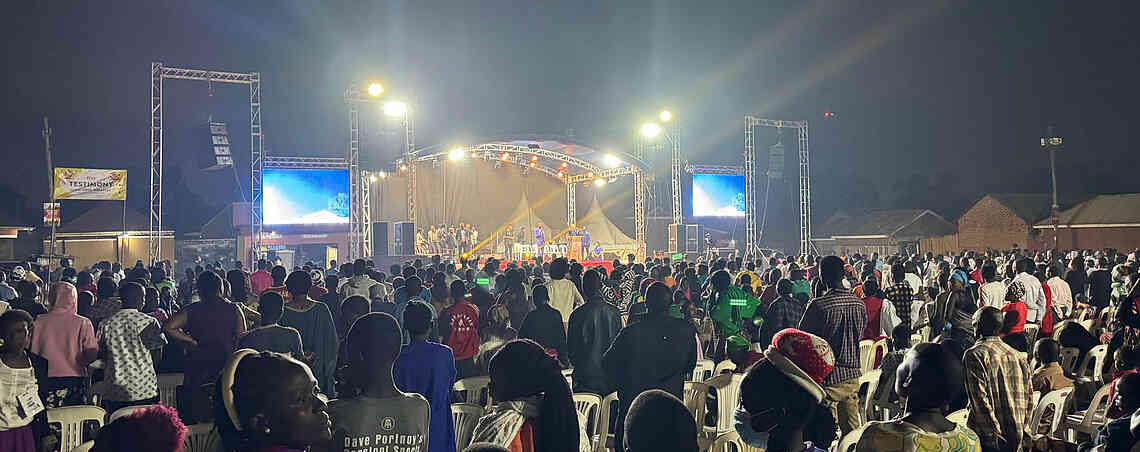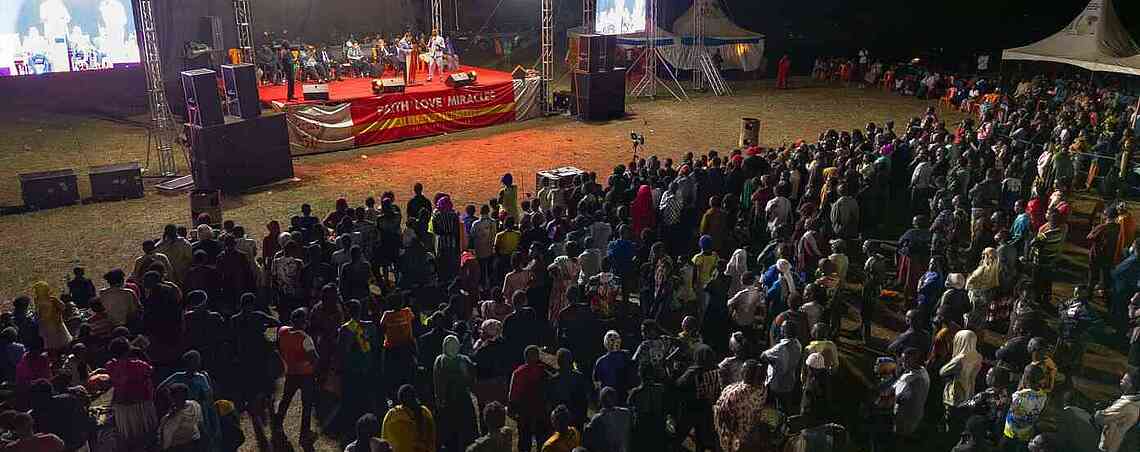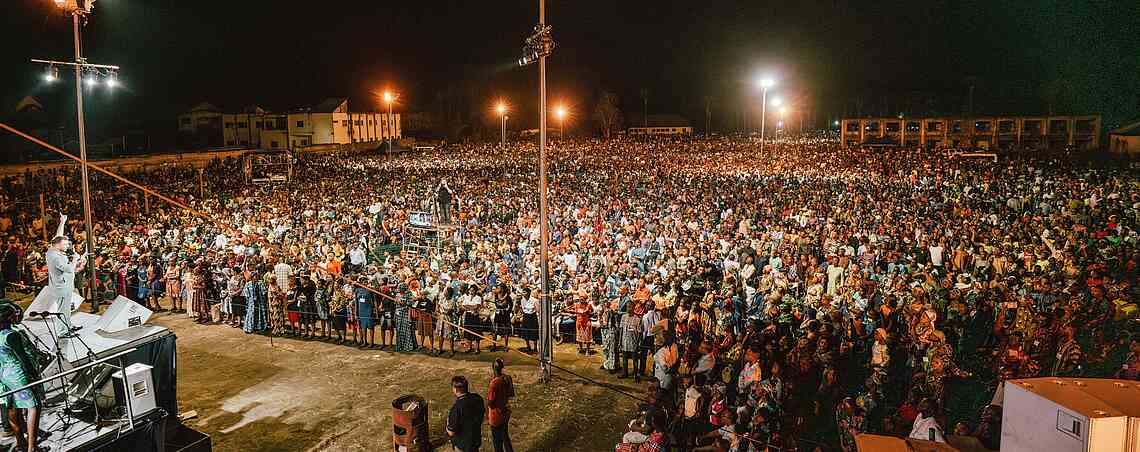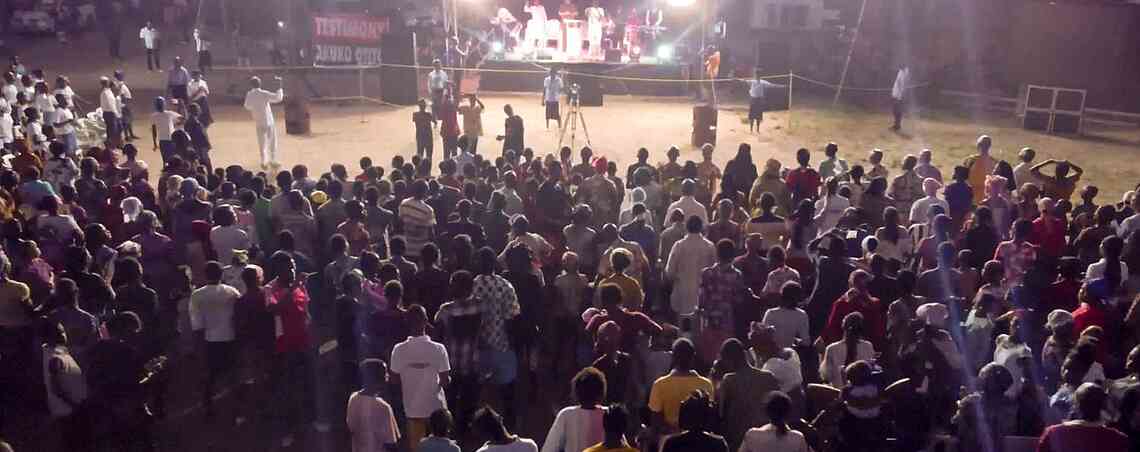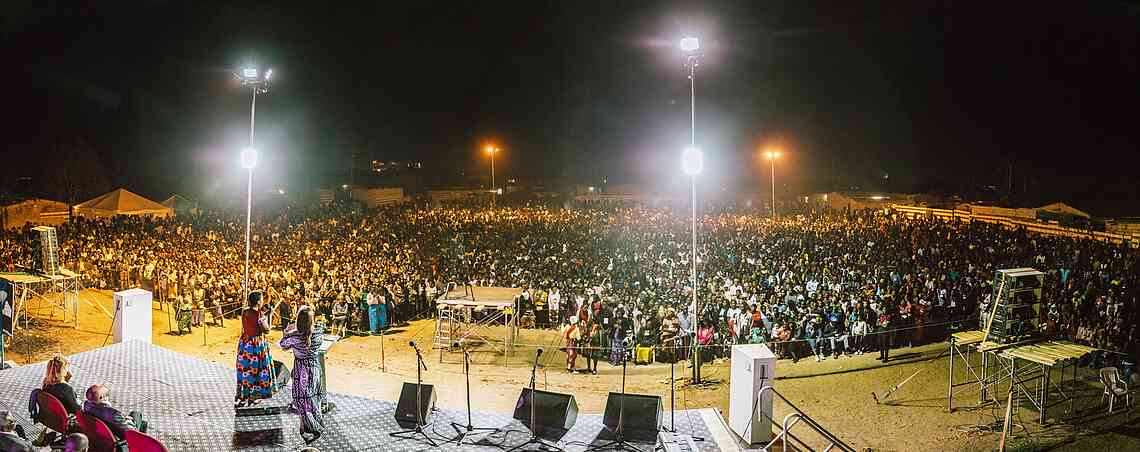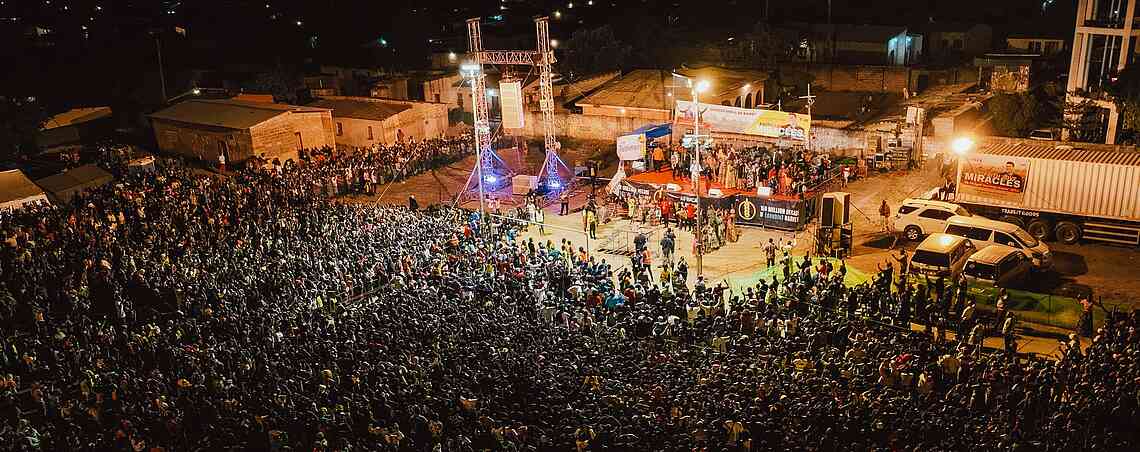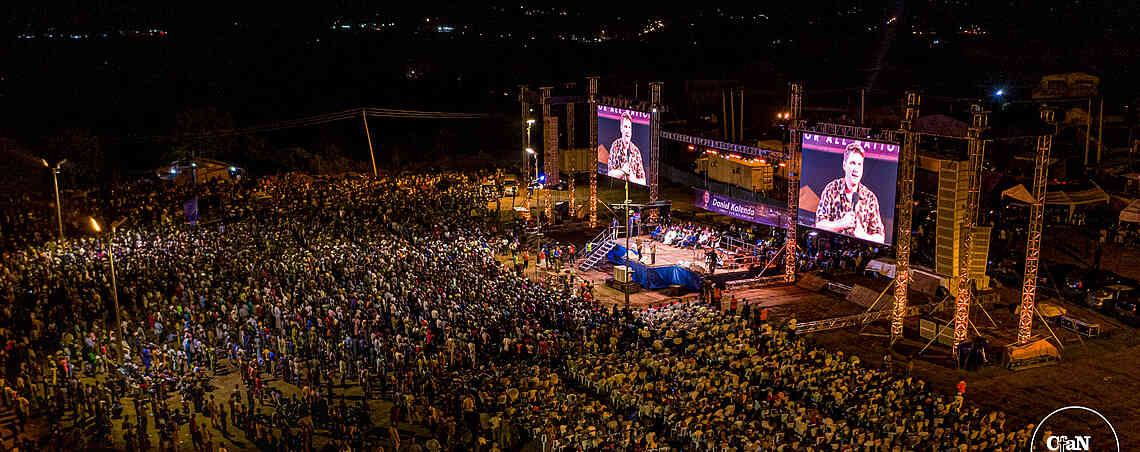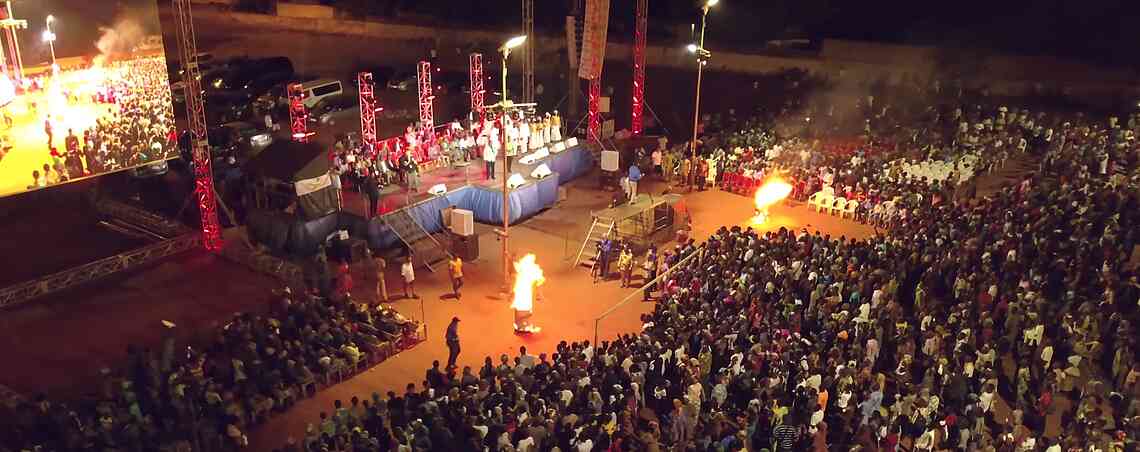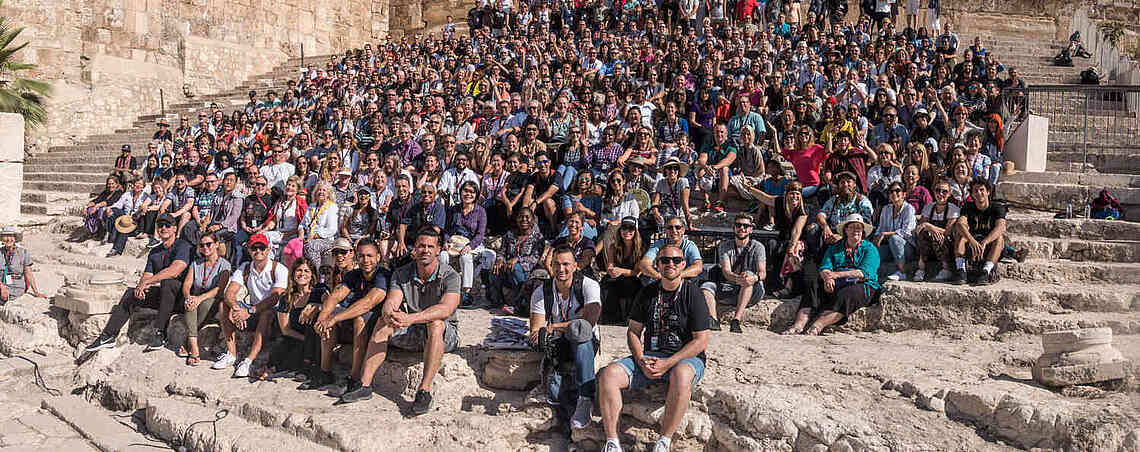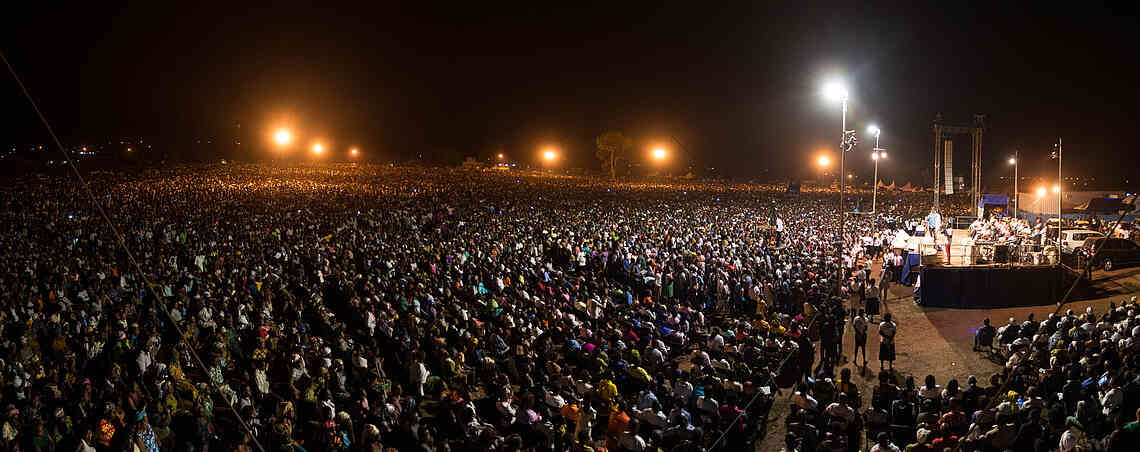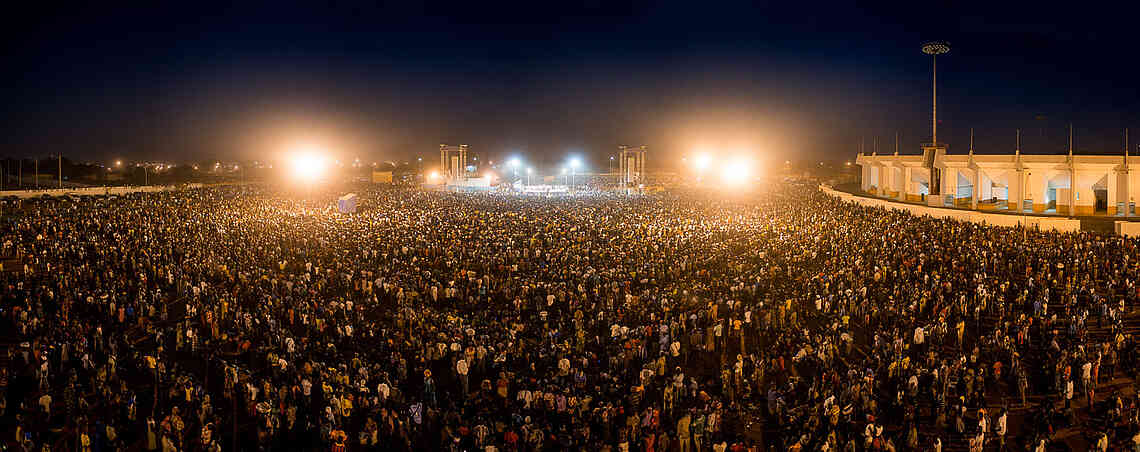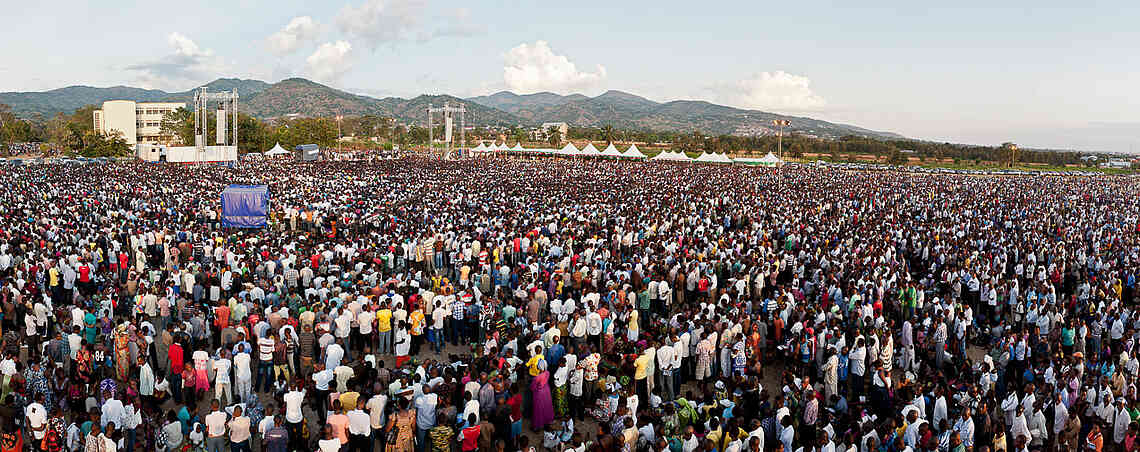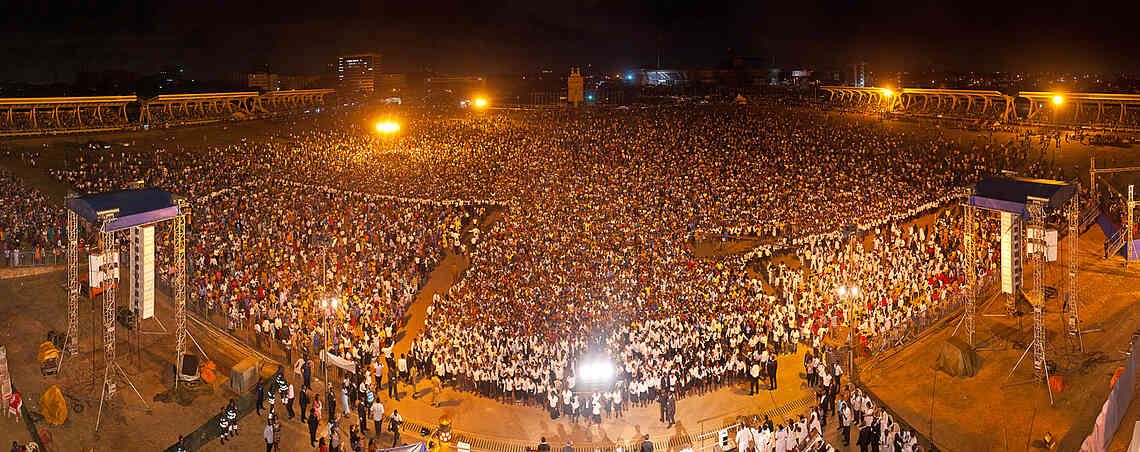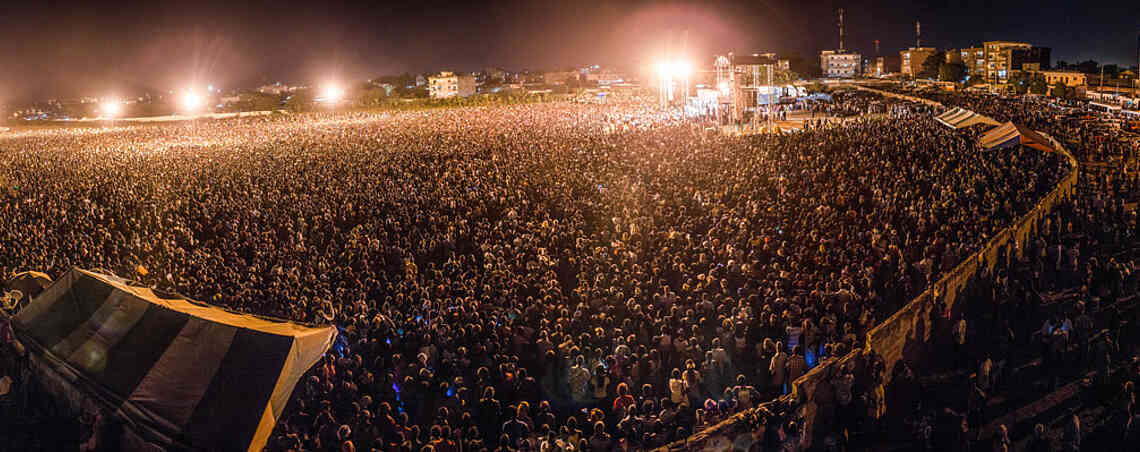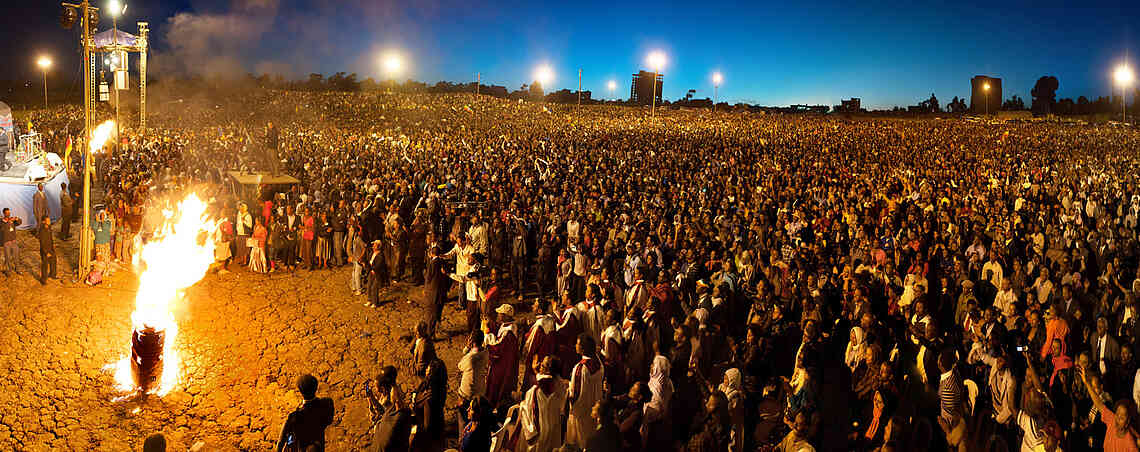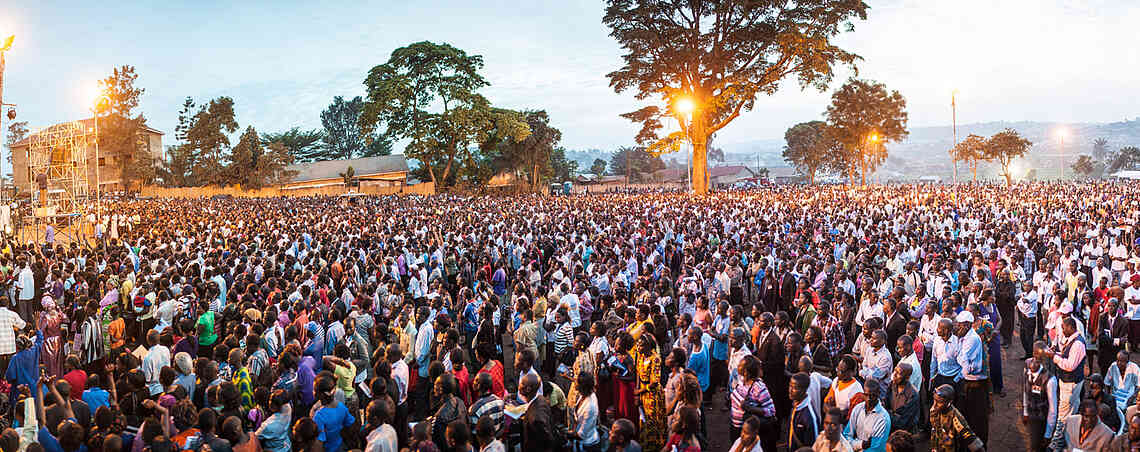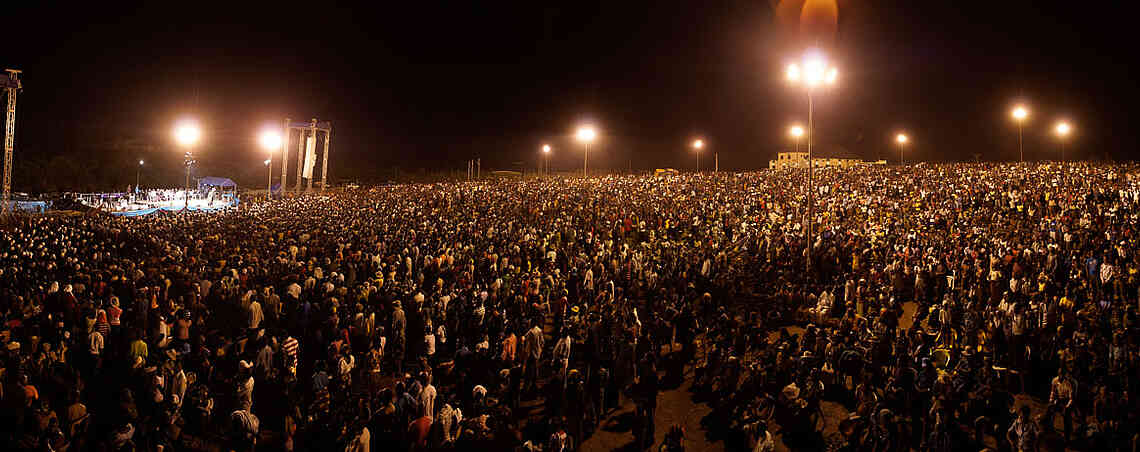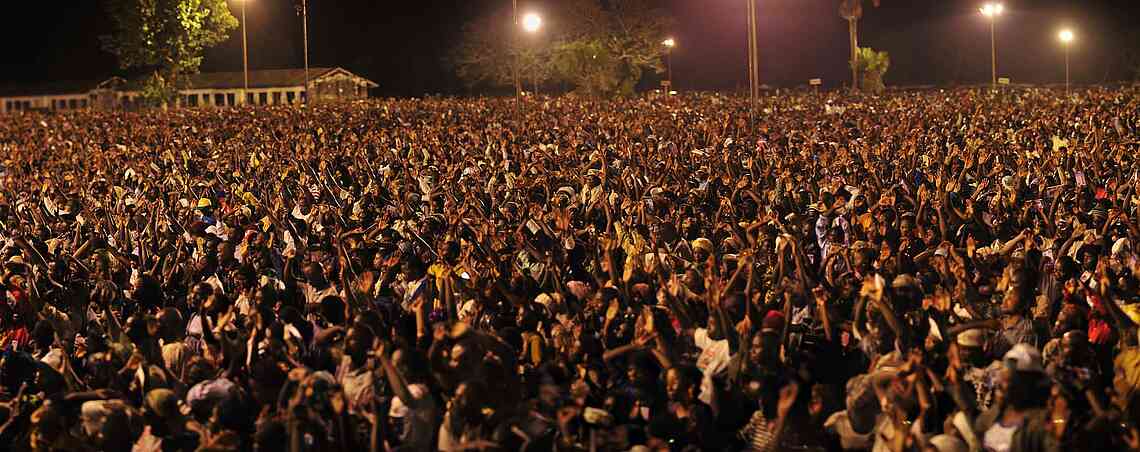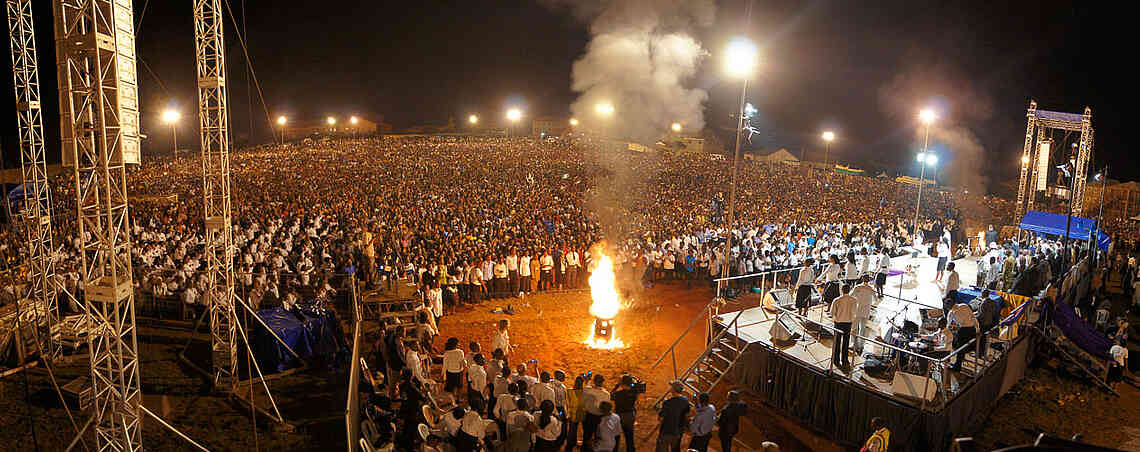
Bible Study
Stand in Your Pea Patch
In 2 Samuel 23 we read about David’s “mighty men,” a small militia of extraordinarily skilled warriors. It was not a big army, but it was a tough army - like a highly trained special forces unit. They were amazingly proficient with their weapons. The chapter goes on to describe in greater detail the exploits of a small handful within that group who were the best of the best of the best!
One of these men was Adino. “He lift up his spear against eight hundred, whom he slew at one time” (v. 8). “Abishai . . . lifted up his spear against three hundred, and slew them” (v. 18). Benaiah the son of Jehoiada “slew two lionlike men of Moab: he went down also and slew a lion in the midst of a pit in time of snow: and he slew an Egyptian, a goodly man: and the Egyptian had a spear in his hand; but he went down to him with a staff, and plucked the spear out the Egyptian’s hand, and slew him with his own spear” (vv. 20–21).
But my favorite one of David’s mighty men was Shammah.
Now after him was Shammah the son of Agee a Hararite. And the Philistines were gathered into a troop, where there was a plot of ground full of lentils, and the people fled from the Philistines. But he took his stand in the midst of the plot, defended it and struck the Philistines; and the Lord brought about a great victory.
2 Samuel 23:11–12, NASB
Let us consider his story.
It was an ordinary day in Israel. The people were going about their daily business as usual. On the outskirts of the city, in a remote field, a group of laborers was harvesting a meager crop of peas. Suddenly a shadow fell on that pea patch from the hills as hundreds of Philistine soldiers appeared, armed in full battle gear. Fear struck the hearts of the people. These farmers were mere peasants, armed only with spades, hoes, and other agricultural tools. They knew they had no chance against a professional army. Remaining in that field would mean almost certain death. They looked down at their pea patch situated on an insignificant plot of land, and they realized that it was not worth risking life and limb to defend that ground. They dropped their farming tools and ran for their lives.
This would have been the end of the story, but unfortunately for the Philistines there was one man in the field that day who was not just a peasant or a farmer—he was a warrior. He was one of David’s “mighty men.” Shammah was perhaps one of the greatest warriors who has ever lived, and this was to be his most glorious battle. From the story of Shammah I would like to give you the three words of wisdom that I believe will help you to remain in the will of God. His story reveals three qualities that I believe are nonnegotiable if you are to go the distance and fulfill God’s will for your life: integrity, focus, and perseverance.
Mind in the Beginning What Matters in the End
Unlike the untrained peasant farmers who had fled the field, Shammah understood something about the tactics of warfare. Maybe this field was nothing but an ordinary pea patch, but this attack was not random—it was highly strategic. Perhaps the Philistines had chosen this pea patch because they thought no one would bother to defend such a worthless field and they could take it without a battle. But on this piece of land the Philistines would establish a stronghold and a base of operations from which they could launch future attacks on the nation of Israel.
When the enemy comes to assault your life, he is not going to start with the thing you are most diligent over. He is going to attack your pea patch: that thing he figures you will not bother to defend and where he thinks you will compromise. And in that compromise he will establish a stronghold to take over your life. I’m sure you’ve seen this before.
A couple has just gotten married. They are so in love and can’t spend enough time together. But a few years later a radical transformation has taken place. They hate each other and want a divorce. You ask, “How did this happen?” I’ll tell you how it happened. It happened one pea patch at a time. Solomon wrote, “[It’s] the little foxes that spoil the vines” (Song of Sol. 2:15, NKJV). A little bit of dishonesty here, a little bit of disrespect there, a hurtful word, a transgression unforgiven; soon a root of bitterness sets in, and before long the enemy has successfully established a stronghold in that couple’s relationship. From that compromised zone he will continue to assault their marriage until he has razed it to the ground.
Integrity
Having integrity means minding the small things - and being as vigilant over them as over the big things. Shammah was an experienced warrior. He knew that if he compromised this little pea patch, soon the enemy would be kicking down his front door. He was fiercely determined not to give up one inch to the Philistines. If we can defend even the smallest, most insignificant pea patches in our lives, the enemy will not be able to gain a foothold. Rather than seeing how close we can get to the cliff of sin without falling over, we should seek to avoid even the appearance of evil (1 Thess. 5:22).
Rather than asking, “How much compromise is too much?” we should be constantly aiming to raise our personal standards to be more like Jesus. Murder was condemned under the law, but Jesus said hatred is murder. Adultery was condemned under the law, but Jesus said lust is adultery. Jesus understood that murder grows from the seed of hatred, and adultery grows from the seed of lust. Once the seed has been planted, the tree, while not fully mature, has been born. It is much better to crush the seeds of sin before they are planted than to have to try to chop down a giant redwood of evil compulsions and addictions. Susanna Wesley gave this word of wisdom to young John Wesley: “If you would judge of the lawfulness or unlawfulness of pleasure, then take this simple rule: Whatever weakens your reason, impairs the tenderness of your conscience, obscures your sense of God, and takes off the relish of spiritual things—that to you is sin.”
Having integrity means being brutal with sin. When the Philistines invaded that pea patch, Shammah did not throw up his arms and say, “Come on, guys. Can we talk about this? Let’s see if we can negotiate a mutually agreeable arrangement here.” Shammah did not meet the Philistines with a white flag but with a sharpened ox goad. He hadn’t come to talk but to fight. If we are to be men and women of integrity, it will not happen by accident. Integrity requires ferocity and resolve. We see this demonstrated in Job when he said, “Till I die I will not remove mine integrity from me. My righteousness I hold fast, and I will not let it go: my heart shall not reproach me so long as I live” (Job 27:5–6).
Having integrity means doing the right thing, even when it means standing alone. Shammah stood in that field all by himself. How he would have loved to stand back to back with one of his mighty comrades from David’s militia, but they were not with him.
The peasant farmers had fled the scene and left Shammah without even moral support. He stood alone, yet he stood his ground.
Having integrity means doing the right thing even when no one is looking. Shammah didn’t fight that battle with the Philistines because he wanted to be a celebrity warrior. The rest of the Israelites had left him alone. He was not fighting like a gladiator in a stadium before a crowd of cheering fans. Yet somehow, thousands of years later, we are still talking about his glorious battle. Somehow the word got out, and everyone heard about what happened in that obscure pea patch. Jesus said, “There is nothing concealed that will not be disclosed, or hidden that will not be made known. What you have said in the dark will be heard in the daylight, and what you have whispered in the ear in the inner rooms will be proclaimed from the roofs” (Luke 12:2–3, NIV). Character is who are you when no one is looking. That is the real you.
A Fascinating Word
Most of the time character flaws hide below the surface invisible to the casual observer. People take great care to make sure no one sees their problems or shortcomings. But if not dealt with, these invisible infections mature into very public diseases.
A little compromise here, a lustful imagination there. Every concession seems so inconsequential. Sin begins as a cute little pet, but it grows into a beast that is never satisfied. As it is fed, it only becomes bigger and hungrier; gratification becomes more difficult, and soon the pet has become the master. In the end you will either kill the beast or it will kill you. The devil is very patient. He is willing to wait, sometimes for many years, while sin matures. Once the enemy has established a stronghold in someone’s life, he will not stop until he has destroyed that person or until that person destroys the stronghold.
I’ll never forget a sermon I heard when I was in seminary from our college president, Michael L. Brown, PhD. He preached about a fascinating word that appears in the Hebrew Scriptures 61 times; it is acharit (pronounced “a-kha-reet”). There is really no single word equivalent for it in English, but the literal meaning of it is “the final or ultimate end.” It speaks of the backside or hinder parts, the part that is to follow, the part that is to come, the final end.3 We find this word used in Psalm 37:37–38: “Mark the perfect man, and behold the upright: for the end [acharit] of that man is peace. But the transgressors shall be destroyed together: the end [acharit] of the wicked shall be cut off.”
Oh, my friend, may we purpose in our hearts to live life in such a way that we will not have to weep in the acharit over uncleanness and sin that we allowed into our lives. “I urge you,” Paul said, “to live a life worthy of the callingyou have received” (Eph. 4:1, NIV). Let us determine to live a life worthy of the calling, a life of integrity, minding in the beginning what matters in the end.
Never Give Up
I think it is interesting that 2 Samuel 23:12 tells us exactly where Shammah strategically positioned himself. It says, “He stationed himself in the middle of the field” (NKJV). He wasn’t standing out on the fringes, and he wasn’t in one of the corners. He was right in the very center of the field. I have seen many people who were called to a particular field, but over the years they became distracted. They lost their focus and wandered to the fringes of their field and sometimes even drifted into other fields they were never called to serve. If you are going to remain in the center of God’s will for your life, you must resolve to stand in the middle of the field to which He has called you and remain focused without allowing the enemy to distract you from that call.
When Shammah made his stand in the middle of that pea patch, he was not hanging around just to get a few licks in before making an exit. For Shammah there were only two options: win or die! He stood his ground, he defended that pea patch, and 2 Samuel 23:12 tells us about the happy ending: “The Lord wrought a great victory.”
We all want to discover God’s will for our lives, but once we discover it, that is not the end; it is only the beginning! Once you have your assignment from God, then you have to stand in your field and fight until God gives the victory. This requires a quality that few seem to possess — perseverance.
In Ephesians 6 we are commanded to “put on the whole armour of God” (v. 11). But verses 13 and 14 say something important: “And having done all, to stand. Stand therefore.” In other words, after you have made all the preparation to stand, now there is one thing left to do—stand! This is where many people miss it. They go to great lengths to discover God’s will for their lives. They go to Bible college; they read books; they receive prophetic words; they prepare themselves in every way possible. But when their skin begins to burn with the heat of the battle, they drop their weapons and retreat. I am aware that this is not a “feel-good” message.
The Secret Ingredient: Perseverance
We are always looking for shortcuts, tips, and tricks, but I’m afraid there is no way around this principle. You can be extraordinarily gifted, talented, anointed, and blessed, but without persistence you will have little impact because the great victories are always on the other side of great battles. The word persevere is made of the prefix per, which means “through,” and severe. Victory comes to those who press through severe battles to the other side without quitting.
R. Alec Mackenzie, who wrote extensively on the subject of time management, said, “The ability to concentrate—to persevere on a course without distraction or diversion—is a power that has enabled men of moderate capability to reach heights of attainment that have eluded the genius. They have no secret formula other than to persevere.”
Apparently Shammah was not the only one of David’s mighty men who knew what it meant to be persistent. The Bible says Eleazar fought so long and so hard in one battle that his hand froze to the sword (2 Sam. 23:10). When it comes to fulfilling God’s will for your life, perseverance is not an option; it is an imperative. If Eleazar or Shammah would have let go of their swords or stopped fighting, the enemy would have killed them. If you let go of God’s calling, you will never fulfill it.
What do you do when the going gets tough? Stand firm and don’t let go! What do you do when the enemy begins to assail from all directions? Stand firm and don’t let go! What do you do when you face financial difficulty, health problems, betrayal, abandonment, rejection, and pain? Stand firm and don’t let go! My friend, the battle belongs to the Lord, and He will win it in His time. Our part is not to question; our part is to obey and stand firm until God gives the victory.
May we stand in our respective fields as David’s mighty men did, prepared to fight to the death for God’s kingdom. And when the day comes for us to leave this world, I pray that the sword will have to be pried out of our lifeless fingers. At the end may we not be found sitting in front of a television, but may we be found with our boots strapped on in the field where God has assigned us. Never give up! Never retreat! Never surrender to the enemy! Your fulfillment of God’s will for your life is not only about you. It’s about your children and your grandchildren and the future of God’s eternal kingdom. So stand! Fight! And endure until the end. And God will give you the victory in Jesus’s name!
Daniel Kolenda
LIVE - before you die, Excerpt from Chapter 20







































